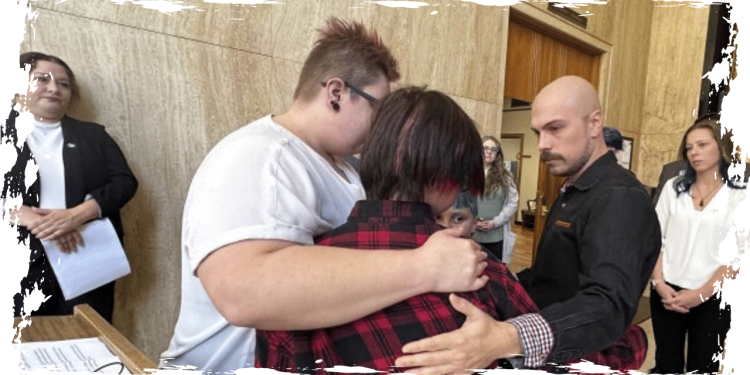According to a judge’s ruling on Wednesday, a North Dakota law that forbids gender-affirming care for children will take effect pending a judicial challenge, but any children whose treatments started before the law took effect in April 2023 can continue to receive the care.
Judge Jackson Lofgren refused a preliminary injunction sought by families attempting to overturn the law, as he did in November when the plaintiffs requested a temporary restraining order.
The plaintiffs claimed that a grandfather clause in the statute was so unclear that providers stopped treating minors in the state, but the judge clarified that kids can continue to receive medical care as they did before the law went into force.
The judge stated that it is unclear if the plaintiffs are “substantially” likely to win their case, which is now scheduled for trial in November, based on arguments that the statute breaches parental rights or personal autonomy and self-determination.
He also rejected arguments that the grandfather clause is unconstitutionally ambiguous and that the plaintiffs have demonstrated irreparable injury. With the current statute in place for more than a year, Lofgren stated, “The public interest in maintaining the status quo weighs against granting a preliminary injunction.”
The bill went into effect immediately when Republican Gov. Doug Burgum signed it in April 2023, following overwhelming passage from the GOP-controlled legislature. It is a crime for a health care provider to prescribe or administer hormone therapy or puberty blockers to a transgender child, and it is a crime for it is a crime for a criminal to conduct gender-affirming surgery on a juvenile.
“The state’s unfair, unjust, and unconstitutional denial of the essential and life-saving health care they require will harm North Dakota children and families more the longer this law stands,” said Gender Justice Senior Staff Attorney Brittany Stewart, who represents the families and a doctor challenging the ban.
Republican state Rep. Bill Tveit, who introduced the legislation, was delighted with the decision. He stated that the legislation protects youngsters from irreversible operations.
Opponents said that the ban would injure transgender children, who are more likely to suffer from despair, self-harm, and suicide, and that no one in the state conducts such surgery.
Despite the provision for children who were getting treatments before the ban’s implementation, providers have deemed the grandfather clause too ambiguous to risk, forcing plaintiff families to fly out of state to obtain gender-affirming care for their children, Gender Justice stated.
The judge disagreed, noting that such infants “can receive any gender-affirming care they could have received in North Dakota prior to the Health Care Law’s enactment.”
Gender Justice concurred that the clarification “paves the way for providers to resume care for these patients in North Dakota.”
“However, significant barriers to access will remain for most or all children and families seeking care in North Dakota, as doctors who stopped providing care to transgender youth may hesitate to resume care due to concerns over the serious legal threats posed by the law,” the statement read.
Twenty-five states have passed legislation prohibiting gender-affirming care for adolescents in recent years, virtually all of which have faced court challenges. Arkansas is appealing after a judge overturned the prohibition entirely. In Montana, courts have halted the law’s enforcement. In addition, the ACLU has petitioned the United States Supreme Court to reconsider whether the bans in Kentucky and Tennessee should remain in effect. The high court has permitted the Idaho statute to remain in effect while cases are pending.










